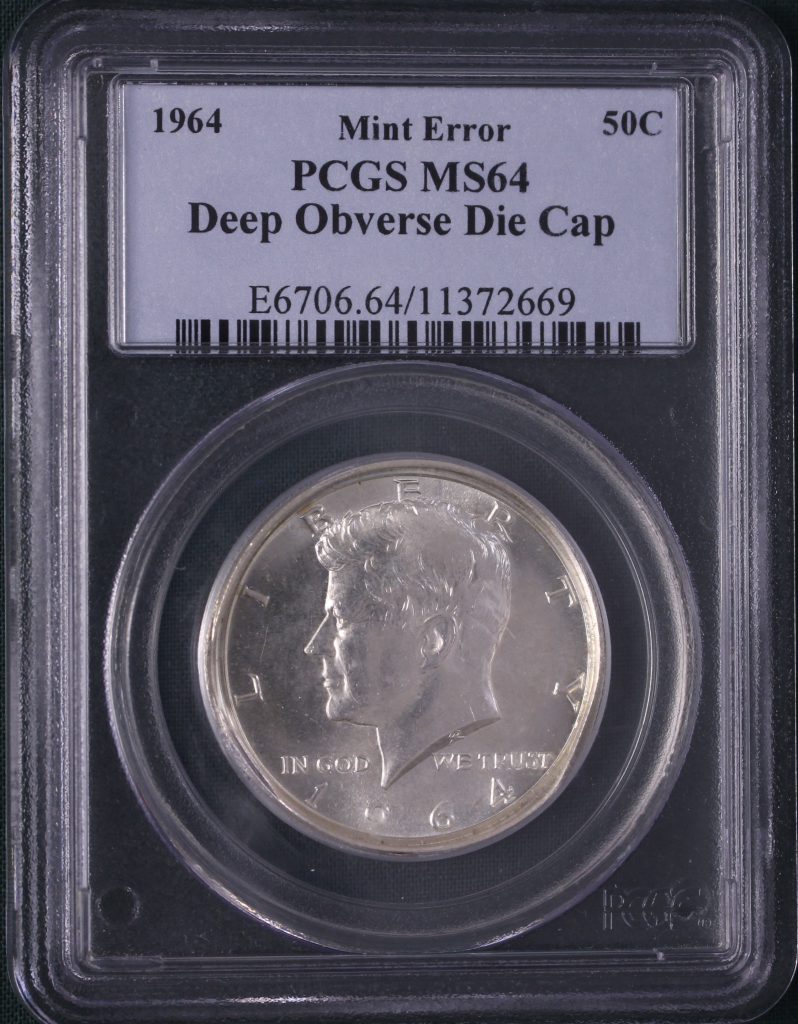Description
1964 Kennedy 50c Deep Die Cap major mint error coin.
In our opinion, a 1964 Kennedy 50c Deep Die Cap is rare. It has a higher degree of rarity if the die cap is on a coin of which is a one year type. In our opinion, this 1964 Kennedy 50c Deep Die Cap is scarce. I have been a major error collector for over 40 years and I have never seen one of these – until now. This 1964 Kennedy 50c Deep Die Cap major mint error coin is one of my favorite error coins. I was reluctant to purchase this since the asking price was quite high. But I made the purchase when the price was right. This 1964 Kennedy 50c Deep Die Cap major mint error coin is valued at over $5,000.00 USD and I can understand why.
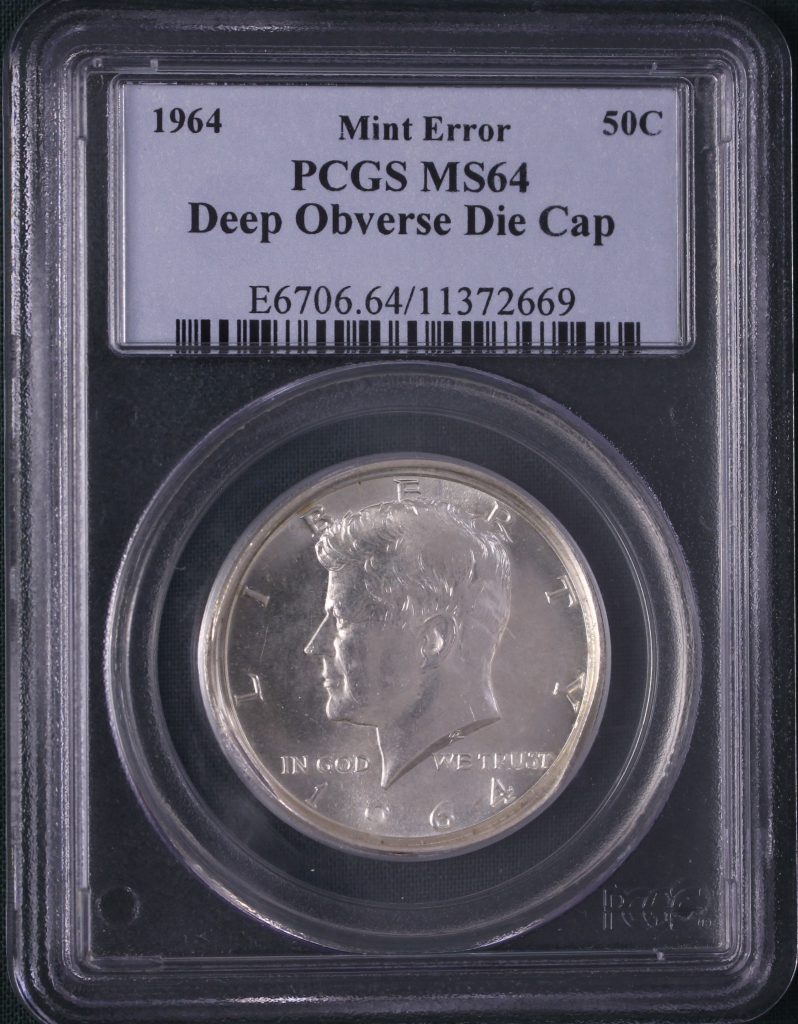
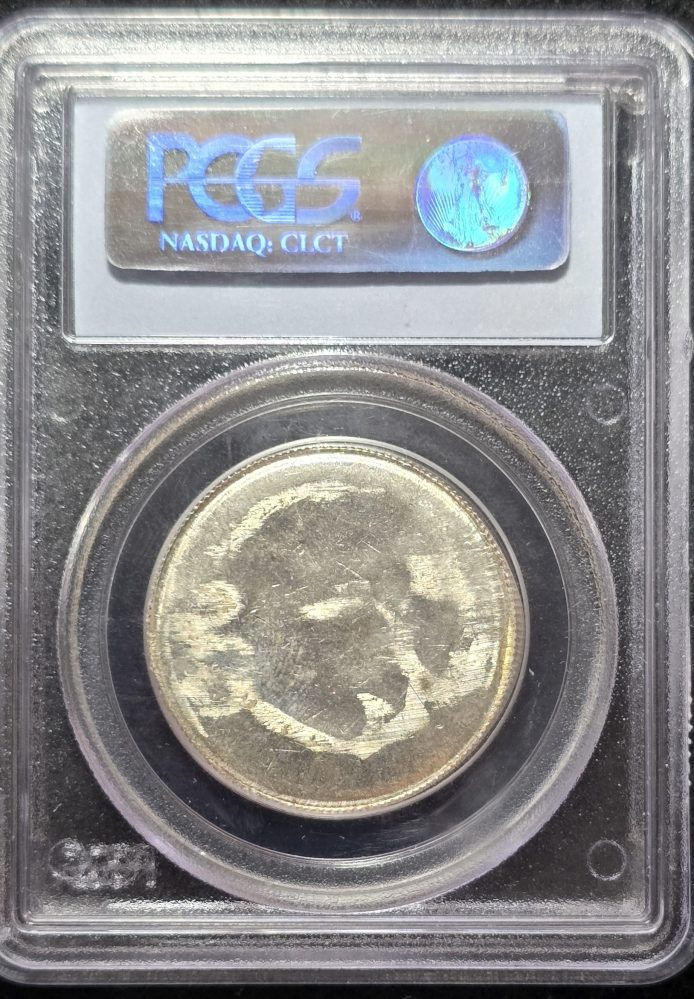
What are Die Caps? How are capped dies created?
A “normal” minting process:
- A minting press houses two dies. One die acts as the Anvil die and it stationary.
- A feeder finger slides a blank planchet into the minting press and it rests on the anvil die
- As the hammer die is lowered a collar or outside ring holds the planchet in place.
- The hammer die squeezes the planchet in between the hammer die and the anvil die.
- The collar is used to keep shape uniformity and to add any reeding around the outer edge.
- After the coin has been struck, it is ejected and send down a chute and out of the minting press,
When a normal strike turns into a major mint error coin:
- Die caps are created when the hammer die comes in contact with the planchet and the anvil die.
- The planchet will adhere to the hammer die and it will not let go.
- This effect is now known as a “capped die”.
- For clarity let us say the hammer die is the obverse of the coin. The anvil die is the reverse of the coin.
- The planchet that is attached to the obverse die will not allow an obverse image to be added to new coins.
- In effect, the capped die minting press will be creating one-sided coins.
- The obverse capped die will continue to strike coins.
- With each strike, the obverse die cap will become thinner.
- The capped die will begin to create a high rim which will raise around the outer area of the die.
- The reverse on a die cap is usually blank since it only has contact with blank planchets.
- Die caps will remain in place until a mint worker clears the error or the die cap breaks away.
What else could go wrong with a capped die?
Uniface strikes, Struck through late stage die caps and Brockage mint errors are possible.
- When the obverse die is capped a few additional errors might be created.
- The minting press will continue to strike “one-sided” planchets.
- These one sided planchets will be called Uniface strikes or one sided coins.
- When the capped die metal is really thin, struck coins may start to show a mushy version of the obverse die.
- This is known as “struck through a late stage capped die“. These coins are NOT a true die cap.
- If there is not a planchet in between the dies and the dies strike, the reverse image can be on the die cap.
- Should this occur, the obverse die cap has a mirror image of the reverse.
- This obverse die cap with the mirror image of the reverse now on it strikes coins and creates a Brockage.
Close up photos of this Deep Die Cap major mint error coin !
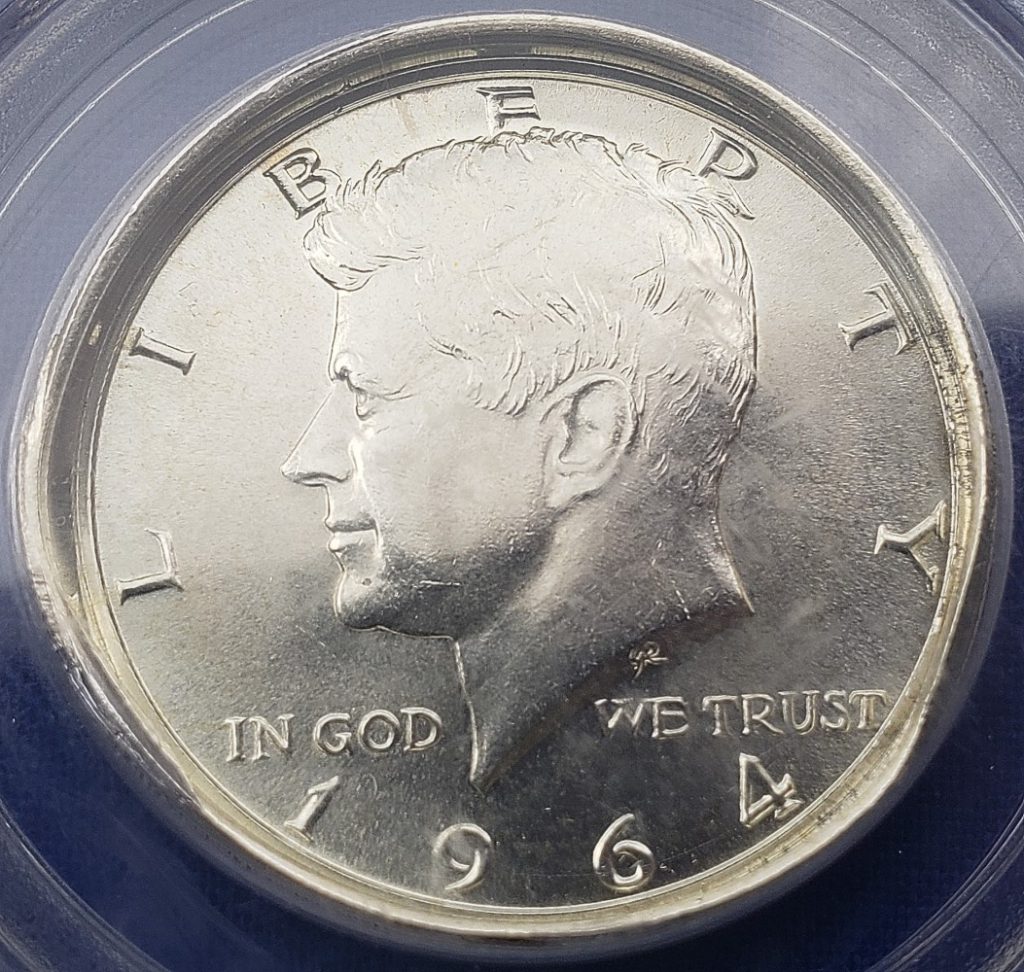
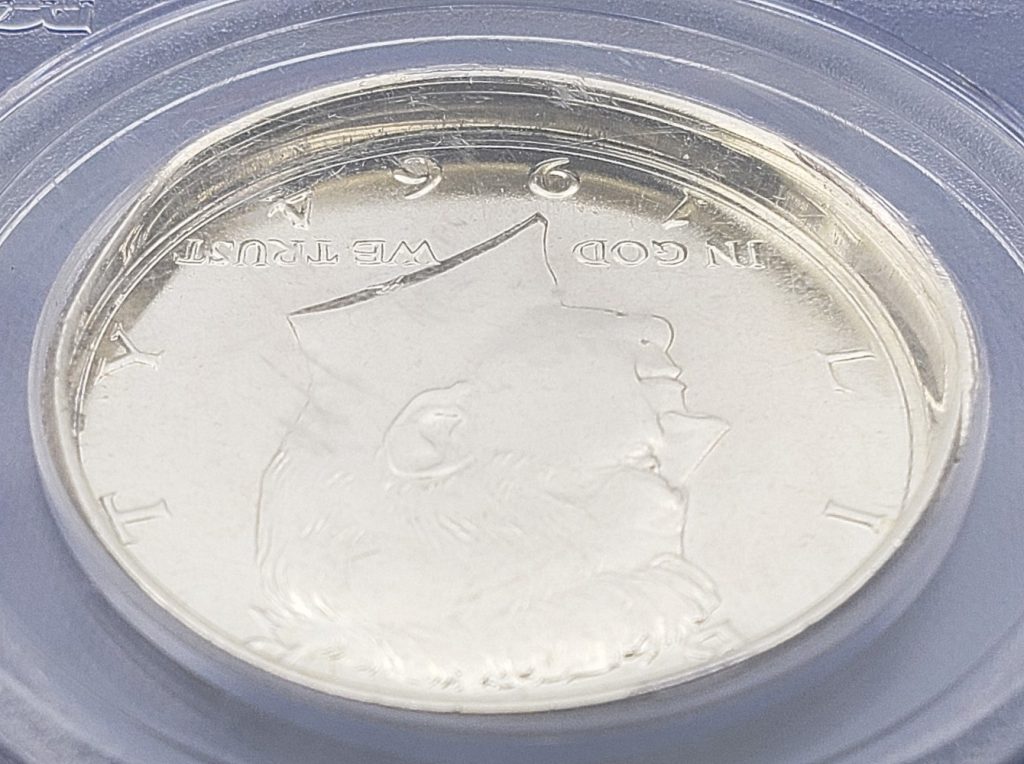
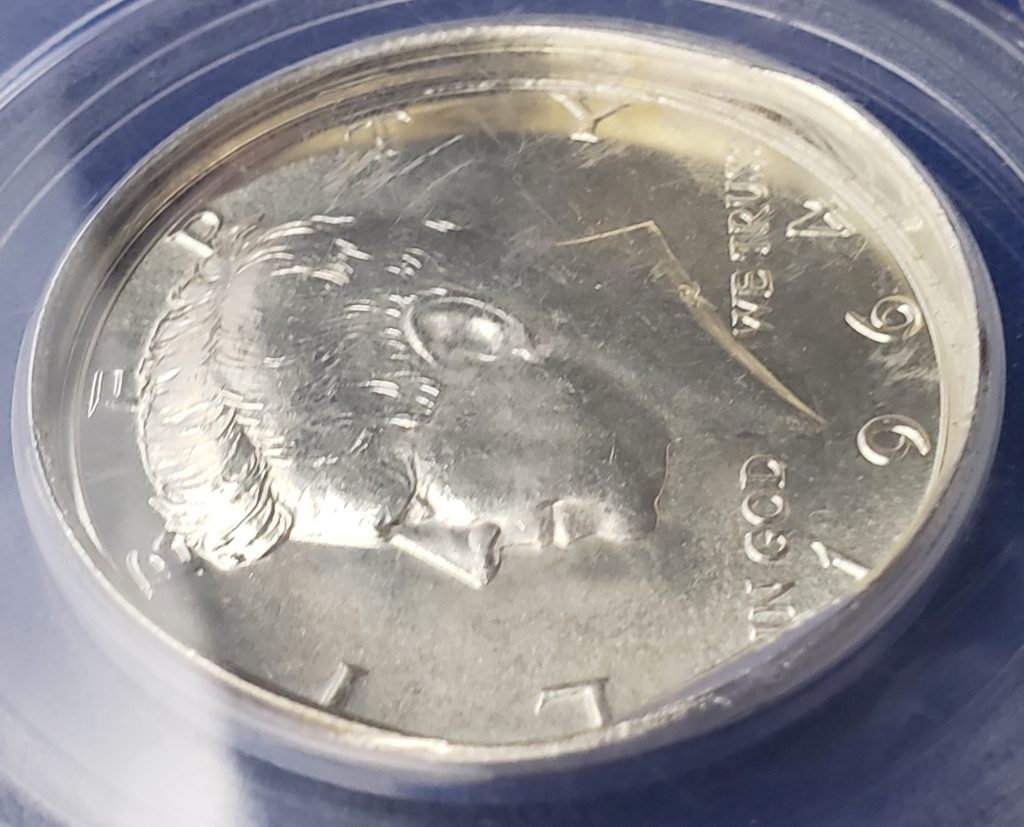

The 1964 Kennedy 50c Deep Die Cap will be available at select coin shows that we will attend in 2025.
Not a big fan of US major error coins? Take a look at our online shop !
https://minterrors.org/index.php/shop
Looking for “normal” coins? Please see Shop – US Coins, Silver Bullion and Numismatic products and services – TheCoinStore.org
Thanks for the visit. If you have any questions about this coin, this website or other generic information about coins, feel free to drop us a note.

